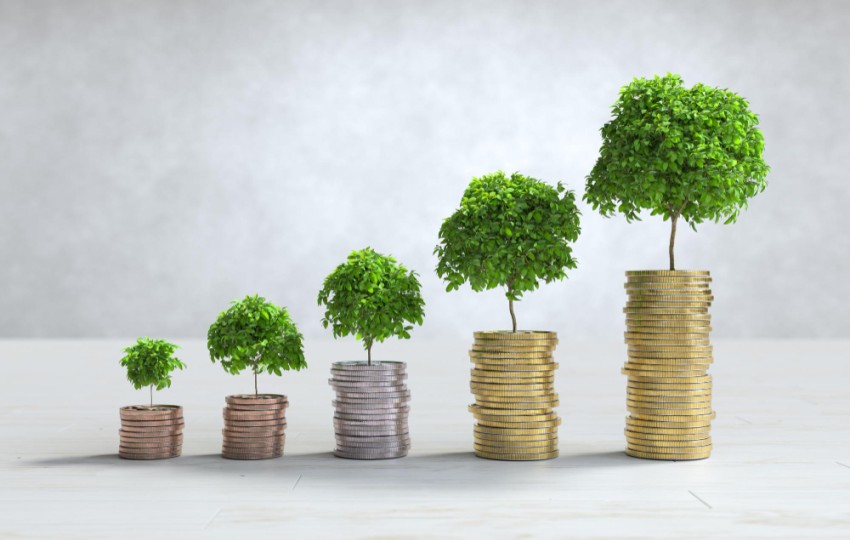- Opening hours : Monday to Friday from 8:30 to 17:00
We use cookies to analyze web traffic. No personal data is collected, and your visit is anonymized to protect your privacy.

Steeds meer mensen zijn zich bewust dat beleggen echt noodzakelijk is. Naast de hoge inflatie, lage rente en de terugtrekkende overheid moet jij zelf meer regelen. Daarom openen steeds meer mensen een beleggingsrekening. Ik leg hieronder een aantal belangrijke begrippen uit die terugkomen als je gaat beleggen. More and more people are realizing that investing is really necessary. In addition to high inflation, low interest rates and the retreating government, you need to take care of more yourself. That's why more and more people are opening investment accounts. Below, I explain some of the important concepts that come up when you start investing.
What is investing?
Investing is participating in the economy. By making money available, you expect to benefit from economic developments. This is based on our economic system: capitalism. You can think a lot of things about this, but in the base it works well. After all, in that system you are rewarded for your work (salary), your good idea (patent, royalties) and your investment (return). If this were no longer the case, there would be no efficient workers, no innovation and no investment in companies and the government. By participating in the economy, you can grow your wealth along with it.
What is return?
This is the compensation for the risk you run. The greater the return, the higher the risk. Unfortunately, there is no holy grail that allows you to get a lot of return with very little risk. Don't expect this either, and what if someone tells you it can be done? Fast forward, because it is not possible. So to get a good return you have to accept risk and take your time. Spreading your risk is also important. Spreading means, among other things, spreading your investments over different countries and sectors. This way you run less risk and they are contained.
What is risk?
The investment definition is: the movement around the expected average return. More concretely, the greater the risk, the more profit in a good year and the more loss in a bad year. Often people perceive risk primarily as the probability of a loss. The real risk I see is not having enough purchasing power in the future to live a nice life. Therefore, it is enormously important to look at your potential return in the long term and not in the short term.
What are stocks?
You become an owner of a company once you become a shareholder. This means that you often get to speak and vote on the company's direction. As a shareholder, you benefit from the profits that are paid out. This is called dividend. In addition, your shares become worth more if the company grows through innovation or increasing profit margins. There are great returns here, but beware: if the company goes bankrupt, as a shareholder you lose your money.
What are bonds?
You lend money to a company or the government. At the end of the term, you get the money back. Meanwhile, you receive interest and this is called the coupon. The amount of interest depends on the term of the bond. The longer you cannot dispose of your money, the higher the interest you want to receive. Creditworthiness is also important. For example, the Dutch government has an "AAA status. This is the highest rating and means that the Netherlands has always met its payment obligations. So your risk as an investor is low, so you receive less interest. With most companies, the credit rating is lower and you receive more interest. This also applies to certain countries. Of course, the current interest rate is also important in determining how much you will receive.
What is long term?
The more risk you take, the more time you need to get an average good return. Think of it as a swing. The harder you swing (risk), the longer it takes for you to hang still. Do you invest only in stocks? Then a minimum term of 12 years is required when you start. The fewer stocks, the shorter the term may be. But shorter than five years I don't think it's wise to start investing.
What is diversification?
One of the first lessons I learned about investing was that diversification is important. The reason has everything to do with reducing your risk. Imagine you invest in a company and it gets into financial trouble and goes bankrupt. As a shareholder, you lose all your money. If you invest in two companies, you still have half your money left and if you invest in 1000 companies, you do not notice the bankruptcy. Research shows that investing too specifically gives the wrong risk-return ratio. You get too little return for the risk run. Of course, you don't want that. So you spread your investments by including many different stocks and bonds in your portfolio and also by including several regions and sectors.
Investing together provides a higher return!
You can choose to invest yourself, but research from Morningstar, Russel Investments and Vanguard, among others, shows something interesting. Namely, that investing together with a financial advisor and a wealth manager produces 2 to 4% higher returns compared to people who invest without guidance.
0 Comments